„WikiLeaks“ nutekinti duomenys rodo, kad Lietuva nuo 2007 m. derėjosi su JAV dėl Gvantanamo kalinių priėmimo ir beveik susitarė dėl ten kalėjusių uzbekų.
Dveji metai slaptų derybų
Viešos diskusijos dėl galimybės Lietuvoje priglausti terorizmu kaltintus Gvantanamo kalinius prasidėjo maždaug 2009-ųjų pradžioje. Tačiau, kaip rodo tinklalapio „WikiLeaks“ paviešinti JAV diplomatijos duomenys, slaptos derybos su Vašingtonu šiuo klausimu prasidėjo gerokai anksčiau.
Dėl Gvantanamo kalinių priėmimo JAV su Lietuva tarėsi dar tuomet, kai Vyriausybei vadovavo socialdemokratas Gediminas Kirkilas. Tai įrodo „WikiLeaks“ paskelbta slapta pažyma, kurią JAV ambasada Paryžiuje siuntė JAV valstybės sekretorei Hillary Clinton.
Pernai vasario 20 d. parašytame dokumente aprašomas karo nusikaltimus kuruojančio JAV ambasadoriaus Clinto Williamsono susitikimas su Prancūzijos pareigūnais. Susitikimo metu buvo aptariamos JAV pastangos įkurdinti uždaromo Gvantanamo bazės kalėjimo kalinius ES šalyse. Iš ambasadoriaus pareiškimų aiškiai matyti, kad Lietuva šį pasiūlymą gavo gerokai anksčiau nei apie tai buvo paskelbta.
„Chevalier (kalbama apie Prancūzijos užsienio reikalų ministerijos atstovą Ericą Chevalier – red. past.) buvo susirūpinęs dėl JAV vyriausybės derybų su Lietuva dėl (Gvantanamo – red. past.) kalinių. Prancūzija, pažymėjo jis, tvirtai laikosi nuostatos, kad prieš sudarant dvišalius susitarimus būtinas procesas ES mastu. Williamsonas pažymėjo, kad neseniai Lietuvos viešai išreikštas pasižadėjimas priimti Gvantanamo kalinius – beveik dvejus metus trukusių derybų rezultatas, o Lietuva užtikrino, kad susitarimas priimti kalinius galėtų būti sudarytas tik po to, kai bus priimta bendra ES pozicija“, – rašoma dokumente.
Amerikiečiai mano, kad Lietuvoje gyvena daug uzbekų
Paprašytas pateikti daugiau informacijos apie Gvantanamo kalinius, kuriuos ketinta siųsti į Lietuvą, JAV ambasadorius nurodė, kad mūsų šaliai parinkti uzbekų tautybės asmenys. Tiesa, vardindamas argumentus, dėl kurių į Lietuvą turėtų keliauti uzbekai, C.Williamsonas pareiškė, kad Lietuvoje gausu uzbekų, ir jie neturėtų problemų bendraudami su lietuviais.
Anot dokumento, C.Williamsonas nurodė, kad „Lietuva yra suinteresuota priimti kai kuriuos uzbekų kalinius, kadangi šie kaliniai – kaip nurodė Lietuvos vyriausybė – galėtų geriausiai pritapti Lietuvos visuomenėje“.
Diplomatas pateikė ir dar vieną, labai netikėtą motyvą. Esą Lietuvos vyriausybė nurodė, kad uzbekai Lietuvoje galėtų lengvai pritapti „dėl bendros kalbos ir didelės uzbekų populiacijos šalyje“. Duomenys apie galimą uzbekų kalinių iš Gvantanamo priėmimą buvo skelbti ir Lietuvoje. Žinoma, neminint JAV diplomatų įsitikinimo, kad mūsų šalyje pilna uzbekų.
Anot dokumento, Lietuvos pareigūnai kontaktavo su uzbekais, kurie turėjo keliauti į mūsų šalį: „Williamsonas pasakė, kad JAV ieško būdų suvesti kalinius ir juos potencialiai priimsiančias šalis, kaip neseniai padaryta su uzbekais ir Lietuva“.
Tiesa, Lietuva laukė žalios šviesos iš Briuselio. „Williamsonas patikslino, kad Lietuvos vyriausybė ketina priimti šiuos kalinius, tik kai bus sutarta dėl bendros ES pozicijos“, – rašoma pranešime.
Skubėjo iki rinkimų
Pernai vasarį, kuomet į viešumą pateko informacija apie Lietuvos ketinimus priglobti vieną ar keletą Gvantanamo kalinių, aukščiausi šalies politikai choru tvirtino, kad derybos tik ką prasidėjo.
„Šis klausimas tik pradėtas svarstyti ir nebus bravūriškai įgyvendintas“, – tuomet sakė teisingumo ministras Remigijus Šimašius.
Oficialūs veiksmai dėl Gvantanamo kalinių taip pat prasidėjo pernai vasarį, o ne pora metų anksčiau, kaip nurodo „WikiLeaks“ dokumentas. Visuomenei pateikta lakoniška informacija, esą JAV su prašymu priglobti du Gvantanamo kalinius kreipėsi 2009 m. vasario 5 d.
Beje, akivaizdu, kad politikai skubėjo priimti JAV reikalingą sprendimą kuo greičiau, iki baigiantis Prezidento Valdo Adamkaus kadencijai. Premjeras Andrius Kubilius Seime minėjo, kad Gvantanamo klausimą reikia išspręsti iki gegužės, kuomet vyks prezidento rinkimai.
Iki rinkimų uzbekai į Lietuvą neatvyko, o Prezidente tapusi Dalia Grybauskaitė atsisakė priimti Gvantanamo kalinius iki bus išsklaidytos abejonės dėl Lietuvos teritorijoje galimai veikusio Centrinės žvalgybos valdybos (CŽV) kalėjimo.
Ekspremjeras derybų nepamena
Nors, kaip rodo „WikiLeaks“ dokumentas, derybos dėl Gvantanamo kalinių priėmimo prasidėjo 2007-aisiais, kuomet prie Vyriausybės stovėjo socdemas G.Kirkilas, pats ekspremjeras teigia apie jokias derybas negirdėjęs.
„Ne, mano laikais dar nebuvo šito klausimo“, – dienraščiui teigė G.Kirkilas. Pasak jo, amerikiečiai dėl Gvantanamo kalinių priglaudimo kreipėsi tik po to, kai Barackas Obama buvo išrinktas prezidentu ir ėmėsi kankinimais pagarsėjusio kalėjimo uždarymo.
Tiesa, ekspremjeras neatmetė galimybės, kad derybos galėjo būti vykdomos tiesiogiai su prezidentūra. „Su manimi niekas nesiderėjo. Gal čia su prezidentūra buvo... bet su manimi – tikrai ne“, – svarstė pašnekovas.
Kadenciją baigusio Prezidento V.Adamkaus asistentė Božena Bagonaitienė dienraščiui teigė negalinti niekuo padėti – esą ji Prezidentą matys tik kitą savaitę.
Visą „WikiLeaks“ paviešintos pažymos tekstą anglų kalba rasite kitame reportažo puslapyje.
S E C R E T PARIS 000264
NOFORN
SIPDIS
C O R R E C T E D COPY CAPTION
E.O. 12958: DECL: 02/19/2019
TAGS: PGOV PREL MOPS PTER PHUM KAWK KISL KPAO FR
SUBJECT: S/WCI AMBASSADOR WILLIAMSON DISCUSSES GUANTANAMO
BAY DETAINEES WITH FRENCH OFFICIALS
REF: A. SECSTATE 6516
¶B. PARIS 00119
¶C. PARIS 02016
¶D. VILNIUS 88
Classified By: POL MC Kathleen H. Allegrone for reasons 1.4 (B & D).
¶1. (S/NF) SUMMARY: S/WCI Ambassador Williamson met with French MFA officials on February 16 to discuss detainee issues, France's role in the EU process and possible resettlement of Guantanamo Bay detainees in France.
Williamson noted that France has a unique role to play in formulating a process within the European Union (EU) to accept detainees and helping assuage the concerns of member states that might stymie EU consensus on the issue. Foreign Ministry Director of Communications and spokesman Eric Chevallier reiterated France's willingness to assist the U.S. on this issue (ref b and c), but noted that the GOF position was "very clear": detainees would be reviewed on a case-by-case basis; the detainee had to specifically request resettlement in France; and France would need full information on interested detainees to review any security and judicial implications. Chevallier said the GOF supports an open EU process that would allow decisions to be made on a national basis, similar to what current EU president the Czech Republic has proposed. The most important issue, he said, would be addressing concerns among Schengen countries.
Williamson said the U.S. is aware of the complexities of the Schengen issue and pledges to work with EU partners as they address these concerns. Chevallier said the GOF was also concerned about recent USG talks with Lithuania on detainees (ref d). France, he cautioned, was standing firm on the
necessity of an EU process before implementation of bilateral agreements between the USG and EU member states on the matter. Williamson noted that recent public pledges by Lithuania to accept Guantanamo detainees were the result of almost two years of talks, and that Lithuania has been firm
that implementation of an agreement to accept detainees would occur only after agreement of a common EU position.
¶2. (S/NF) SUMMARY CONTINUED: Chevallier noted French concern that former detainees, after being released from Guantanamo, could return to or become involved in terrorist activities.
Williamson noted that of the approximately 60 detainees for whom the U.S. was seeking resettlement all had been previously approved for transfer. Chevallier asked if there were any USG plans to transfer detainees to other parts of the U.S. without the promise of a swift trial and if the U.S. was going to accept some of these low-risk detainees.
Chevallier claimed that the more information France had regarding these issues the better able it would be to persuade the French public and other EU member states by highlighting U.S. efforts to resettle the detainees.
Williamson replied that the interagency review process headed by the Attorney General would try to answer these and other questions regarding the detainees. Chevallier gave his support to help with future meetings on this issue with the French ministries of justice and the interior. END SUMMARY.
¶3. (SBU) S/WCI Ambassador Clint Williamson met on February 16 with French MFA advisors to the foreign minister Eric Chevallier and Sylvie Pantz, as well as with MFA Desk Officer for Strategic Affairs Camille Petit. Charg Mark Pekala, Embassy poloff and Shaun Coughlin (S/WCI) also participated.
Detainees: French Open to Helping U.S.
--------------------------------------
¶4. (S/NF) In response to President Obama's January 22 Executive Order to close detention facilities at Guantanamo Bay Naval Base (ref a), French FM Kouchner publicly gave his support to review the idea of accepting detainees deemed not to be a security risk (ref b). S/WCI Ambassador Williamson followed up with advisors to the French foreign minister on February 16 to seek GOF cooperation on the resettlement of Guantanamo detainees. Williamson noted that President Obama and Secretary Clinton strongly believe closing the detention center at Guantanamo Bay, Cuba is a critical foreign policy issue facing the USG. Secretary Clinton asked Williamson to meet with European partners to explain the USG position on this matter since the change of administration. Williamson thanked France for its help on this issue, noting that France has a unique role to play in formulating a process within the European Union (EU) to accept detainees and helping assuage the concerns of member states that might stymie EU consensus on the issue.
¶5. (S/NF) Foreign Ministry spokesman Eric Chevallier reiterated France's willingness to assist the U.S. on this issue (ref b and c), but clarified the GOF position: detainees would be reviewed on a case-by-case basis; the detainee had to specifically request resettlement in France; and France would need full information on interested detainees in order to review any security and judicial implications. Chevallier said the GOF was "happy, in principal" that the prison would be closed, but noted that any agreement by France to accept detainees could not be centered on discussions of "numbers" (i.e., France, and other EU members, cannot be told they have to accept a specific number of detainees).
French Stress Importance of Common EU Position
--------------------------------------------- -
¶6. (S/NF) Chevallier said the GOF supports an open EU process that would allow decisions to be made on a national basis, similar to what the Czech Republic has been proposing. The most important issue, he said, would be addressing concerns among Schengen countries. Williamson said the U.S. was aware of the complexities of the Schengen issue and pledged to work with EU partners as they address these concerns. Williamson said the USG was concerned about the potential for any EU process to drag out, especially by EU member states that did not want to accept detainees. The USG hopes that France could play an important role to assuage these concerns.
Chevallier noted that while there would not be complete consensus within the EU on whether to accept detainees the GOF would push other EU member states to be more open. There was room for EU evolution in a common position, he said. Williamson also noted that EU members Ireland and Portugal were wary of an EU process that did not allow for flexibility, as what happened when both of these countries were directed by the EU to take Palestinian militants involved in the 2002 siege of the Church of the Nativity in Bethlehem. Chevallier said that Church of the Nativity scenario was unlikely to happen again. Rather, a solution such as what the Czechs were now proposing seemed more likely as it hinged on flexibility.
¶7. (S/NF) Chevallier said the GOF was also concerned about recent USG talks with Lithuania on the matter (ref d); he hoped Williamson could provide him with more details on those discussions. Regarding Lithuania, Williamson noted that recent public statements by that government to accept Guantanamo detainees were the result of almost two years of talks. He said that Lithuania was interested in accepting some of the Uzbek detainees because these detainees -- as was deemed by the GOL -- could best fit into Lithuanian society due to a common language and the presence of a large Uzbek population in the country. Williamson clarified that the GOL intended to implement a decision to accept these detainees only once an EU framework had been agreed on. Williamson also explained that the U.S. would continue to pursue bilateral discussions with interested states as the EU process progressed. He said that it would create inordinate delays if bilateral discussions had to be put on hold until the EU process was completed, and stressed that this was entirely consistent with the preferred Czech approach of creating a "permissive EU environment in which member states could decide to accept detainees." Chevallier agreed that this was a logical way forward.
Detainees: French Concerns about Security
-----------------------------------------
¶8. (S/NF) Sylvie Pantz said the GOF was concerned about the reliability of information now available on detainees. She said that the GOF would need as much case information as possible in order to make a proper assessment. Pantz noted that recent requests by the NGO community -- Reprieve and Human Rights Watch -- to the GOF to accept detainees lacked details, which made it difficult to verify claims of abuse and assess security concerns. She was hoping the U.S. could help fill these gaps. Williamson noted that a major change within the Obama administration's approach was moving lead responsibility for detainee status reviews from the Department of Defense to the Department of Justice. The Attorney General would now lead the interagency process.
Williamson said the process would ensure that all information pertaining to a detainee was compiled in one place, that fresh reviews of the material would take place in order to determine prosecutability and that renewed threat assessments would be undertaken. He said the USG was happy to facilitate visits to Guantanamo to interview detainees who might be resettled, as well as share medical and case records. So far, he noted, there were 60 low-risk detainees who had been
previously approved for transfer and it was unlikely the security assessment for these individuals would be raised, although it was possible.
¶9. (S/NF) Pantz and Chevallier asked about recent reports of detainees who, after being released, return to or become involved in terrorist activities. Chevallier said there were concerns in France that detainees determined to be low-risk before entering Guantanamo could, depending on their experiences in the detention center, pose serious risks to security once released. Williamson said that out of the 525 detainees already released, over 500 returned to their home countries. Forty to 60 of these individuals were thought to have engaged in some sort of terrorist actions, ranging from minor to larger acts, such as reports of detainees returning to the battlefield in Iraq or Afghanistan. However, he noted, all of these cases had been previously assessed as higher risk, which was very different from the detainees for whom the U.S. was now seeking to resettle. Williamson said threat level assessments were based on the present state of the detainee, taking into account interviews, psychiatric evaluations and other reviews. He indicated that the one other case of low-threat detainee resettlements, to Albania, had gone well and that the eight former detainees had assimilated to varying degrees into life there. Further, France could be assured that the U.S. would share any security concerns regarding the detainees with its friends and allies.
French Questions about U.S. Plans to Resettle Detainees
--------------------------------------------- ----------
¶10. (S/NF) Chevallier asked if there were any USG plans to transfer high-risk detainees to the U.S. without the promise of a swift trial. He also asked if the U.S. was going to accept some of the low-risk detainees. Chevallier noted that more information France had regarding these issues the better able it would be to persuade the French public and other EU member states by highlighting U.S. efforts to find a solution to the detainee issue. Williamson replied that the interagency review process would try to answer these and other questions regarding the detainees. That aside, he said the Obama administration realizes it would be a bad idea to simply move detainees from one place to another as it would not adequately address the problem. Pantz asked whether detainees who could not return home but were seeking to be resettled would simply receive a wish list of potential accepting countries. Williamson said the U.S. was looking into options to establish links with potential accepting nations and the detainee, such as what was recently done with the Uzbeks and Lithuania, but clarified that the USG was reluctant to simply ask detainees where they would like to go as it could complicate the resettlement process.
Future Talks: Offer to Help
---------------------------
¶11. (S/NF) Chevallier suggested that for future visits Williamson should also speak to representatives from the French ministries of justice and the interior. He said the MFA would take the lead on setting up these meetings for Williamson,s next visit to France.
¶12. (U) SWCI Williamson has cleared this message.
PEKALA
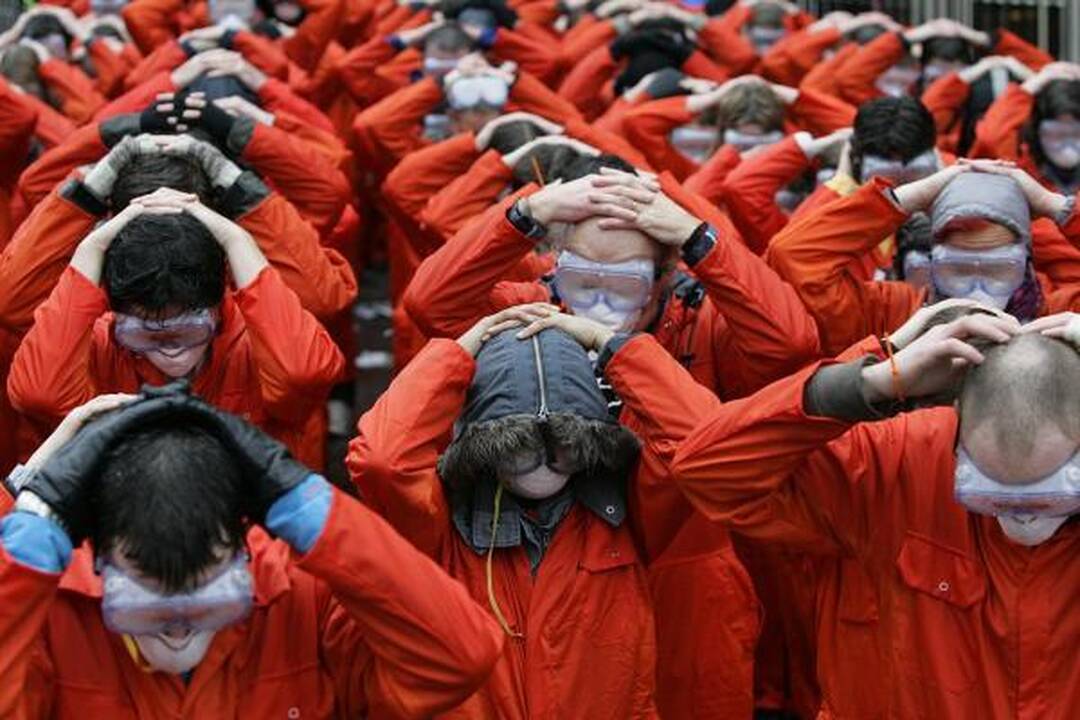
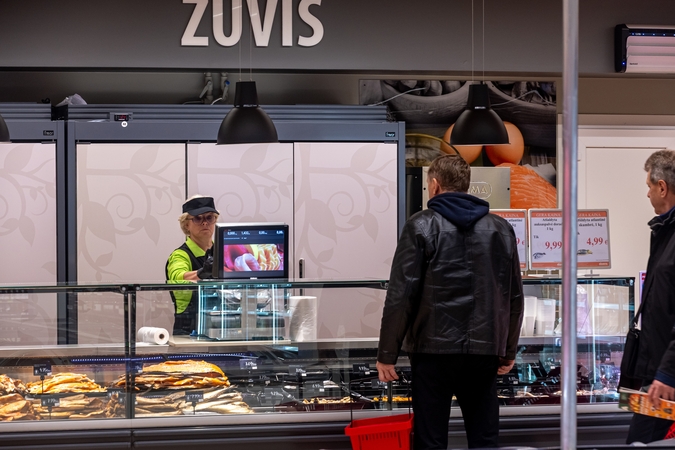
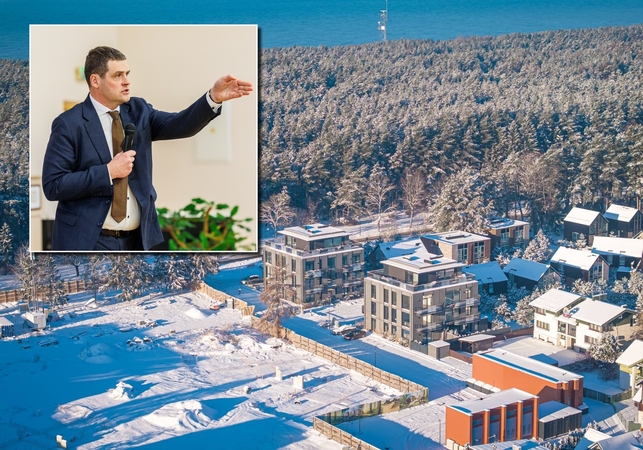
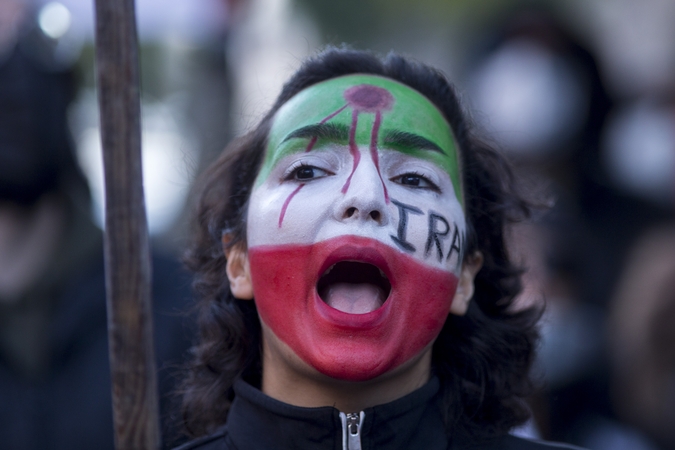




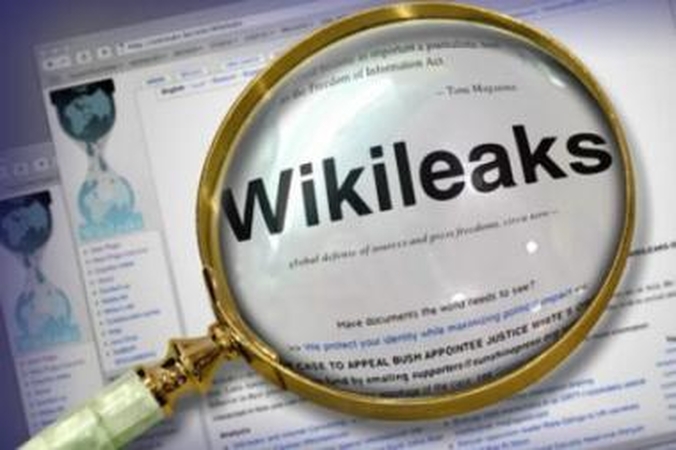
Naujausi komentarai